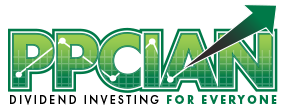As you may know from my blogroll and also some of my previous posts, I’m a big fan of domaining. In my opinion, domaining is the natural extension of pay per click search engine marketing. Today, I’m going to look at domain selection from a different perspective and offer my personal advice on domaining specifically for pay per click websites.
PPC Domains Versus SEO Domains

Let’s start off with an interesting distinction: Sometimes it makes sense to have separate SEO and PPC websites. Whether you’re like me running pay per click campaigns for a large corporation or are a small business owner, there are often cases where you’ll want to have separate domains (and websites) for PPC and SEO. Now, this definitely is not the case all the time. In fact, most of the time, I’m a proponent of leveraging the same website for PPC and organic. Why? You keep a unified brand and get compound effects in your brand equity. However, there are cases where it makes perfect sense to split your domains for these two media channels. I’ll briefly highlight a few of them:
- Your SEO site gets a ton of traffic and is very old, but the name doesn’t include the most important keyword(s) from your vertical. For PPC, it’s essential to include the keywords in your URL. Otherwise, your click through rate may be low and you’ll get priced out of the market.
- Your vertical is incredibly competitive and you want multiple if not hundreds of PPC websites targeted toward niches within your vertical. Many of the most sophisticated affiliate marketers out there leverage this strategy.
- You’re make a lot of money in SEO and want to shield your established SEO site from potential bans against your pay per click activity. Please note that I never advise pushing the limits. It’s all about the long term and your relationships with the search engines. However, recently I have heard stories about advertisers getting banned from PPC with little recourse. Some of these advertisers believe they were banned by mistake. If you’re making a ton of money organically, you may choose to play it safe and only send PPC traffic to new sites that shield the risk.
- You’re an affiliate marketer with very little SEO presence, but a huge PPC presence. If you’re in this bucket, you’ll be thinking
primarily about URLs that will improve your PPC click through rate and conversion.
PPC Domain Strategy 1: Keywords Are Critical
So we’ve established that there are times where you’ll want to have a separate PPC versus SEO domain strategy. In the remainder of this article, I’ll highlight a few strategies that can work wonders for your PPC click through rate and conversion rate.
First and foremost, make sure the most important keywords in your niche are actually in your domain name. It’s that easy! Google and other search engines will bold each part of your ad that matches the user’s query. The display URL is considered part of your ad. If the keywords are in there, you will see an improved click through rate (and therefore position) not to mention possible improvements to your conversion rate because the ad is more relevant to the user’s query.
Now, you may find when you search for keyword rich URLs in verticals such as insurance, mortgage, debt, education, and others that they’re all taken. My suggestion: Consider the dot net or dot org versions (these work well in PPC), buying your domain on the aftermarket, or leveraging dashes (see next tip).
PPC Domain Strategy 2: Leverage Dashes In Your Domain Name
This is one of my favorite tips because it’s counterintuitive and can save you thousands of dollars while adding huge value. The tip is simple: Consider PPC domains that have dashes in them. In the SEO world, URLs with dashes are often frowned upon as cheap domains for those that can’t afford "real" domains.
However, dashes can really help in PPC. When you separate the words in your URL with dashes, it makes the URL easier to decipher and can improve your click through rate. Moreover, URLs with dashes are cheaper and widely available because at this time they hold little value on the resale market.
PPC Domain Strategy 3: Buy Domains That Read Well With Subdomains
As mentioned earlier, it’s important to include the important keywords in your display URL to improve your click through rate. Now, one way of doing that is registering hundreds of domains and creating hundreds of corresponding microsites for all of the sub-niches within your vertical. However, there exists an easier way to do this: Buy short PPC domains that follow well with subdomains.
Let’s say you’re in the education vertical. If you have a long URL like ApplyForOnlineCollegeDegrees.com, you’re not going to be able to do too much with subdomains because the URL is already getting a bit long and there’s a 35 character maximum in Google’s display URL. Now, let’s say you own the URL Degrees.com. Obviously, this is going to cost you quite a bit of money, but you will have incredible flexibility in using subdomains for your PPC campaigns. For example, you can use Nursing.Degrees.com for your nursing keywords, Law.Degrees.com for your law degrees, and Accounting.Degrees.com for accounting. As an important note, Google does not care if you actually have a site present at these subdomains. The only requirement as of right now is that the root domain Degrees.com works. In sum: Short and flexible domains are awesome for PPC.
To close out, I sincerely hope these tips help in your quest to acquire and build out PPC-specific domains. Many times, your PPC domain strategy has strong parallels to your SEO strategy. However, other times your PPC domain strategy might be very different!
Image of Bull Market © iStockPhoto – enot-poloskun

I think one word domain names in thousands right now.
Learned the most in this post by far. What do you mean though when you say”easier to decipher ” ?
As in to who? Search engines or the user?
Dino,
Great question! I’m talking exclusively here about the user. When you have a multi-word URL separated by dashes, it can sometimes make the URL easier to read when the user is scanning the page. This will sometimes improve your click through rate which is the most important element of Google’s quality score. Basically, by appealing to the user more and improving your CTR, Google will reward you with lower CPCs and more traffic! Some of the really big affiliate shops in the financial services space literally own thousands of domains with dashes in them (one for every sub-niche within a particular vertical). Thanks again Dino for the question and positive feedback, I very much appreciate it!
All the best,
Ian
Ian, I have always looked down on hyphens in URLs, even for PPC. After thinking more about it (thanks to this post) it really does make sense.
Quick question: Do you typically buy multiple domains for each PPC campaign to target each niche group, or do you buy a generic domain and use sub-domains or add-ons?
Profit Addiction,
Awesome question! There really is no right answer and I’ll actually leverage both strategies… I’m a huge fan of having one very generic domain (if your company can afford the huge cost which could be several hundred thousand dollars or even one million plus) and then using vanity sub-domains and folders to increase CTR. The reason: It creates simplicity and also Google is sometimes not a huge fan of mixing/matching domain names. Moreover, history is stored on the domain level. If you start spreading your spend amongst too many domains, you can dilute that component of history. As a point of clarity, ClickEquations believes that vanity sub-domains and folders count as different URLs for history (check out their quality score white paper) so that implies you should really keep the sub-domains and folders to a minimum as well and reuse them as much as possible. I will say, however, that some of the huge lead gen affiliate shops are masters of using hundreds or even thousands of different domains for each niche. Why? CTR is the biggest component of quality score so they’re willing to dilute history a bit to get that CTR advantage. Moreover, it’s a lot cheaper to buy a bunch of URLs with dashes in them than invest in a domain that could cost you several hundred thousand dollars. I’m personally a fan of both strategies and see them as equally valid. 🙂 Great question!
All the best,
Ian
Thanks for the answer Ian. I’m going to start thinking more about using dashed domains for PPC campaigns. Like you said, they are definitely cost effective!